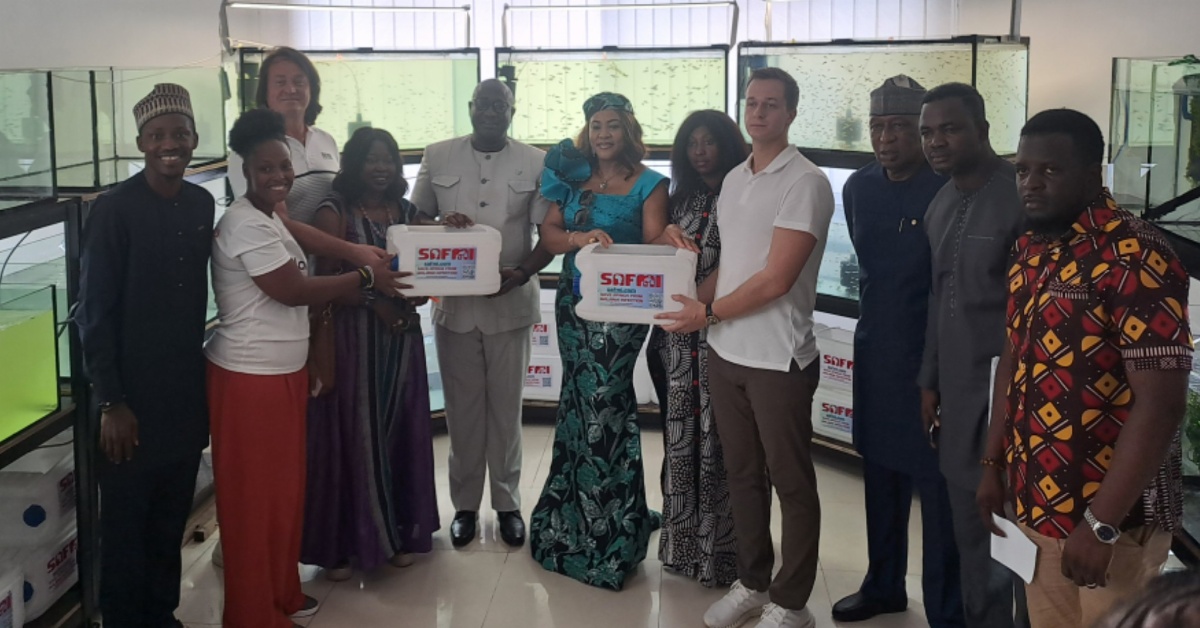On November 14, 2024, Save Africa From Malaria Infection (SAFMI), a leading international non-governmental organization focused on malaria prevention, was officially launched in Sierra Leone. The event took place at the West African Sunshine, located at Lumley Beach Road, Aberdeen, Freetown, marking a significant step forward in the fight against malaria in the region.
SAFMI’s innovative approach centers on the use of the Gambusia fish, a species known for its ability to consume mosquito larvae, providing a natural and sustainable solution to reduce malaria transmission. This groundbreaking method, which has been proven to significantly lower mosquito populations, is set to revolutionize the fight against malaria not only in Sierra Leone but across the West African sub-region.
In his opening remarks, SAFMI founder Mr. Yury expressed the importance of the launch, stating, “This is the beginning of a crucial mission. Many people have suffered from malaria, and we aim to make a difference with this simple yet powerful tool. By introducing Gambusia fish, we can help dissolve the threat of mosquitoes and, in turn, malaria. We believe that by working together, we can achieve our ultimate goal: saving Africa from this deadly infection.”
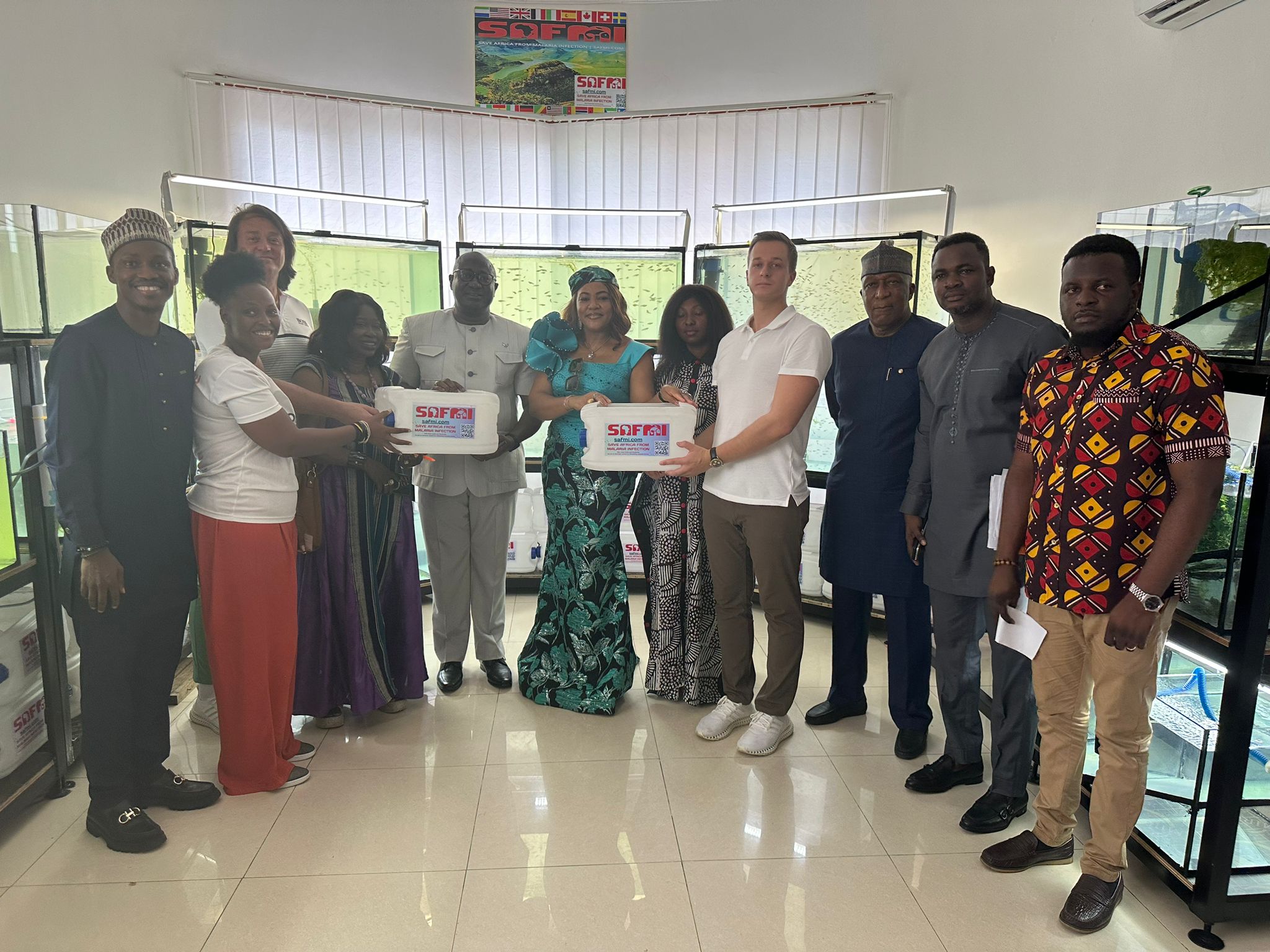
Deputy Minister of Planning and Economic Development, Dr. Jonathan Titus-Williams, delivered the keynote address, highlighting the ongoing struggle against malaria in Sierra Leone and across sub-Saharan Africa. “Malaria remains one of the greatest obstacles to achieving improved health outcomes in our country,” he noted. “Despite progress in developing treatments and preventive measures, including vaccines, the disease continues to devastate communities, particularly women and children.”
He went on to commend SAFMI’s innovative solution, which aligns with the government’s commitment to improving healthcare under President Bio’s Human Capital Development initiative. “The launch of SAFMI is a step in the right direction, in line with our President’s Big 5 Agenda. It’s a call for social justice and inclusion, and we are delighted to welcome this new partner in our collective effort to eradicate malaria.
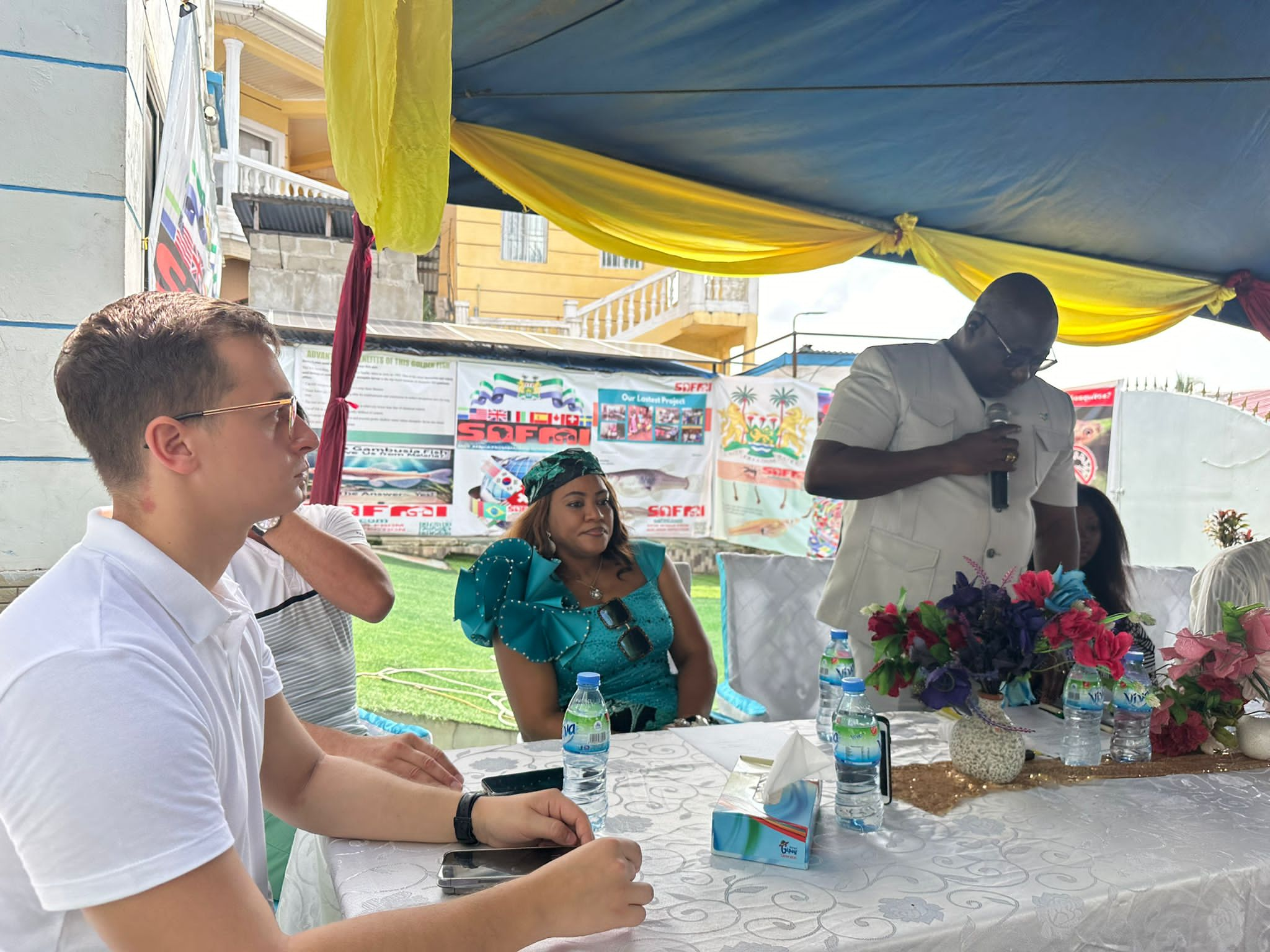
CEO of SAFMI, Artem Volchenko, elaborated on the organization’s operations in Sierra Leone, explaining that hundreds of artificial fish ponds have been distributed to local hospitals and communities. He emphasized SAFMI’s focus on environmental sustainability and public health, stating that by deploying the Gambusia fish in strategic water bodies across Freetown, the organization aims to drastically reduce the spread of malaria.
Dr. Prisca Ndu, a representative from SAFMI Nigeria, lauded Sierra Leone for embracing this innovative malaria prevention method. “The Gambusia fish is a natural, organic solution to one of Africa’s biggest epidemics,” she said. “We are committed to expanding this project across the continent, and this launch is a vital step toward that goal.”
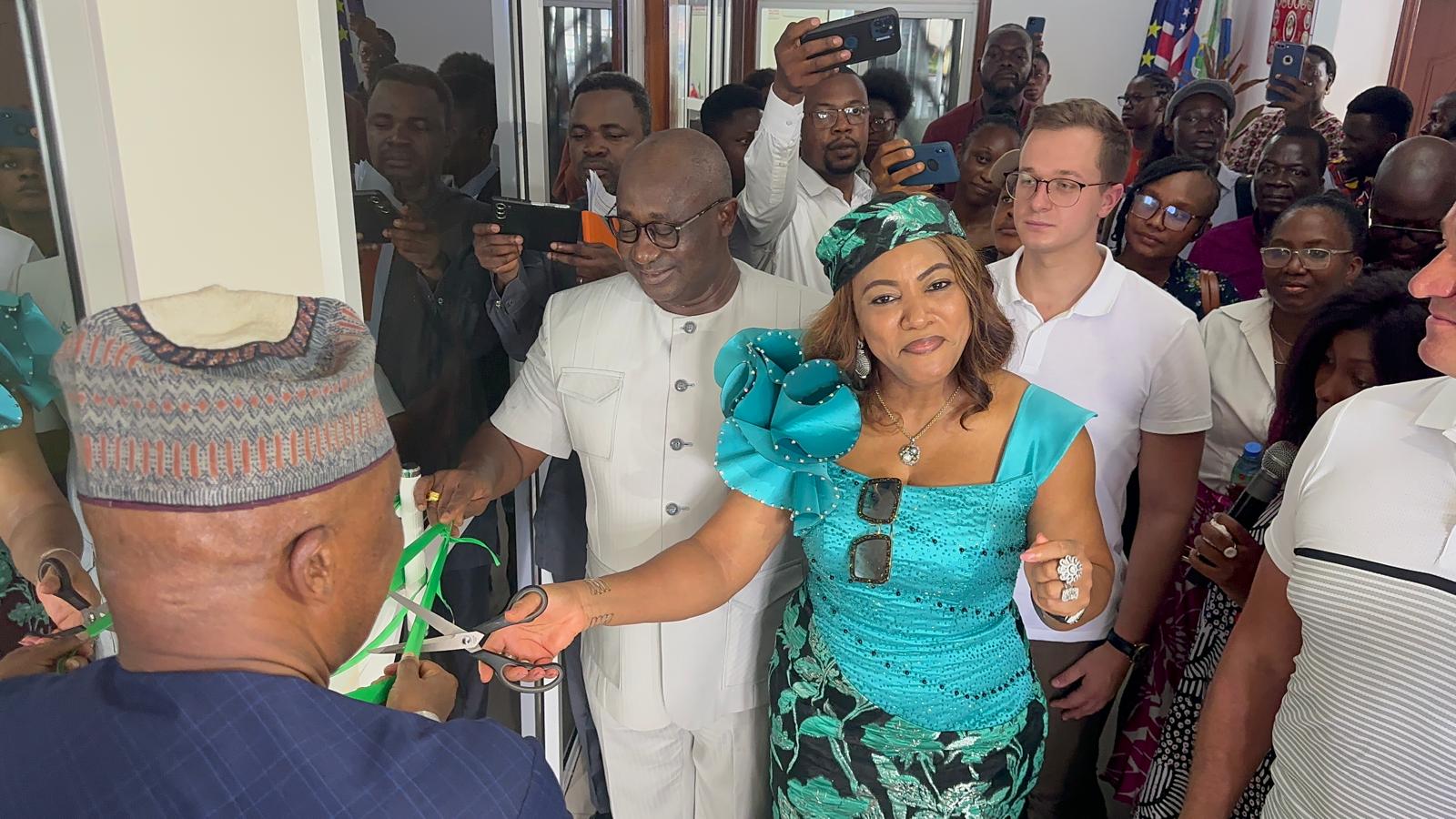
The Deputy Minister of Tourism also weighed in, noting that malaria is not just a health issue but a barrier to economic development. She pledged her ministry’s support in raising awareness about the Gambusia fish solution, stating, “This fight is not just for health professionals—it’s for every Sierra Leonean.”
A beneficiary from the George Brook community in Dwarzak shared his testimony during the event, revealing that since the introduction of a fish pond at the local hospital’s postnatal ward, mosquito breeding has drastically decreased, leading to a significant reduction in malaria cases. “Patients don’t even need to use mosquito nets anymore,” he said, expressing gratitude to SAFMI for its efforts.
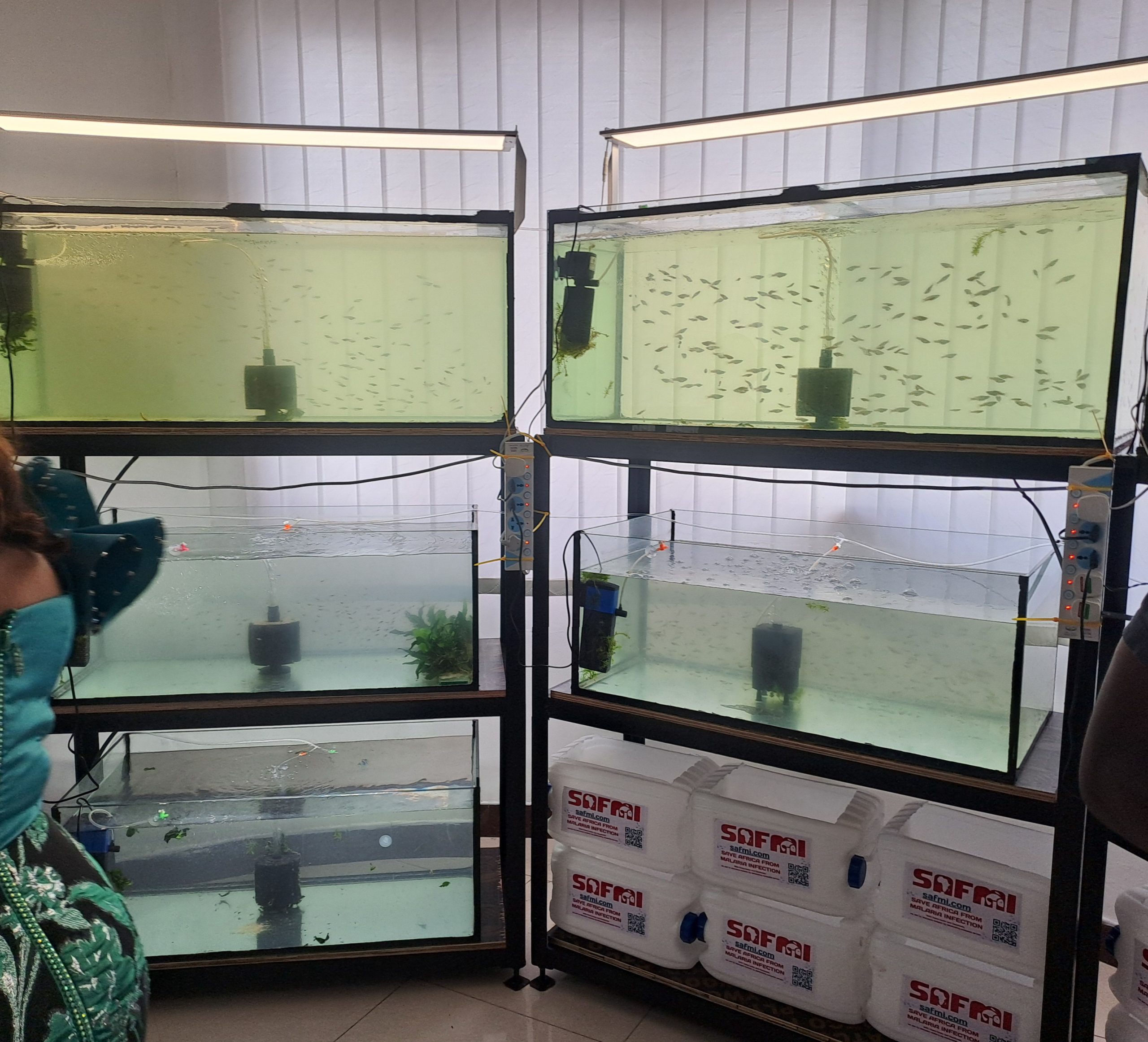
The launch attracted a diverse group of dignitaries, including government officials, malaria experts from across Africa, and development partners. The event concluded with a guided tour of SAFMI’s Gambusia Mosquito Fish Farm, where attendees were able to witness the organization’s innovative work firsthand.
With this launch, SAFMI is set to lead a new chapter in Sierra Leone’s fight against malaria, offering a sustainable, environmentally friendly solution to a persistent public health challenge.


